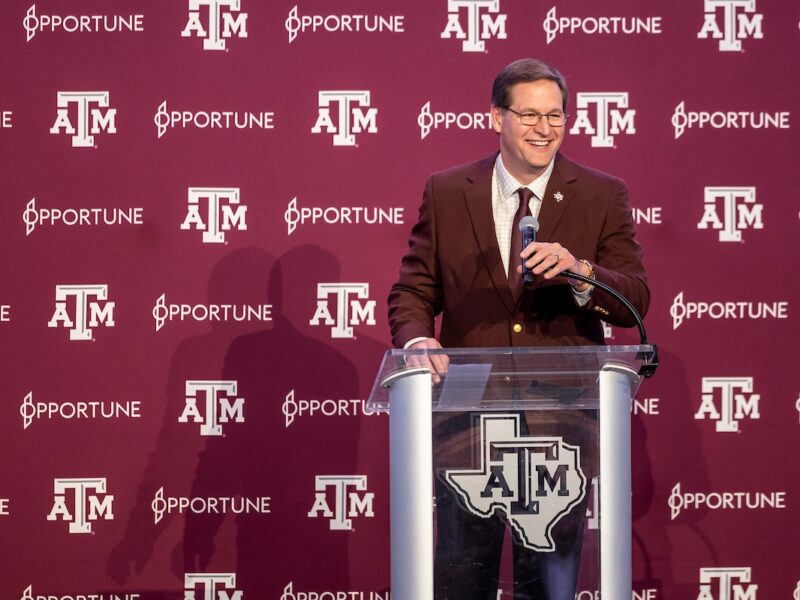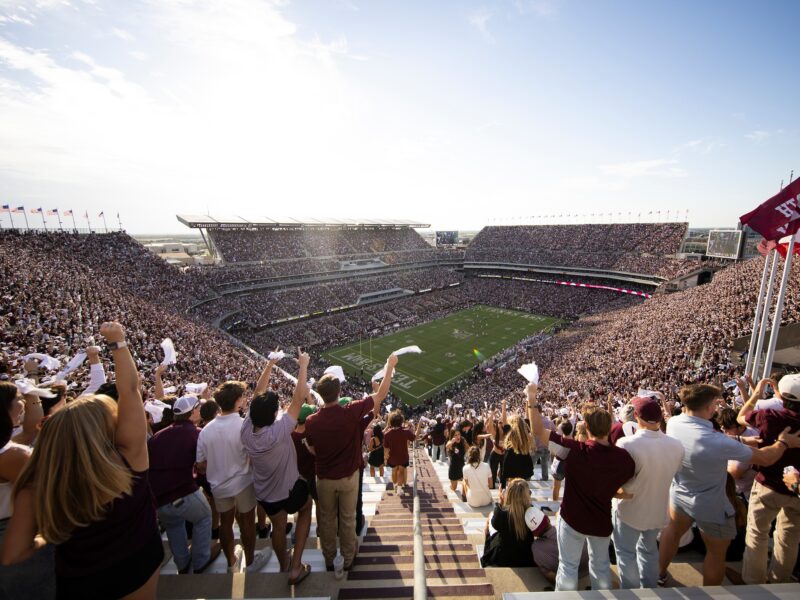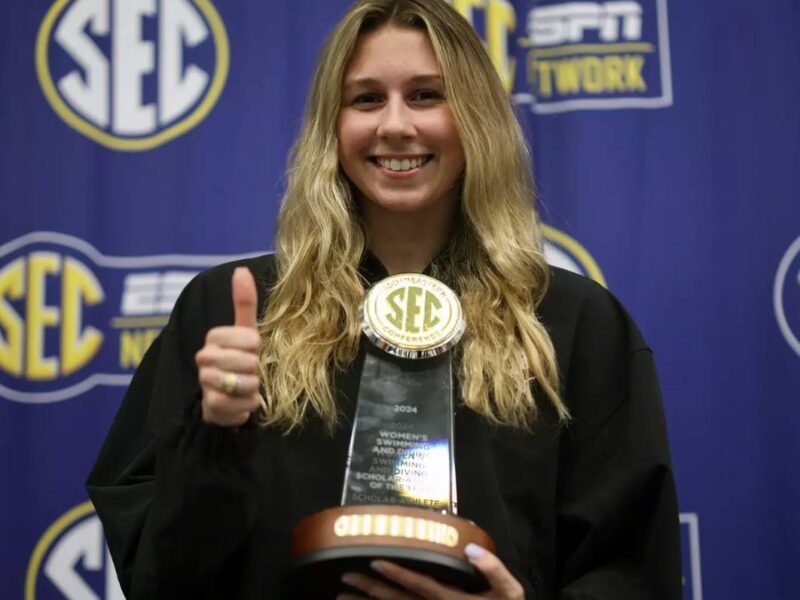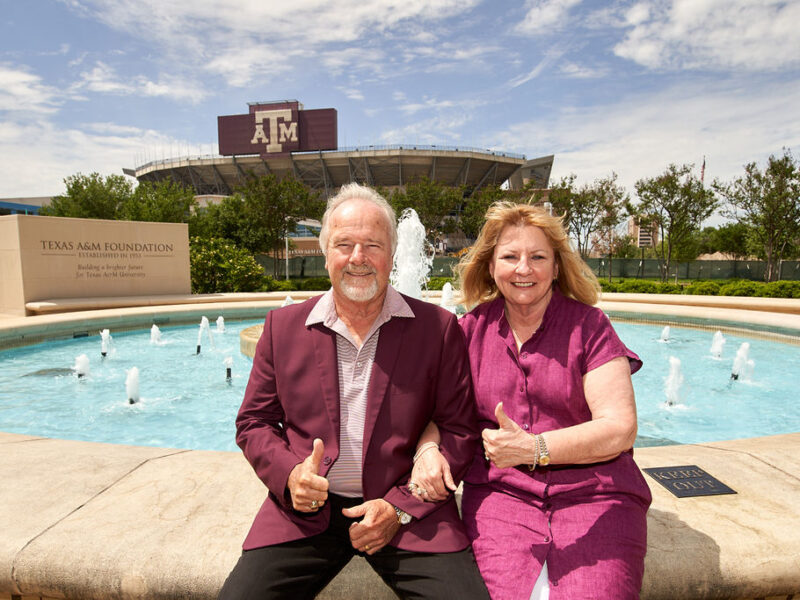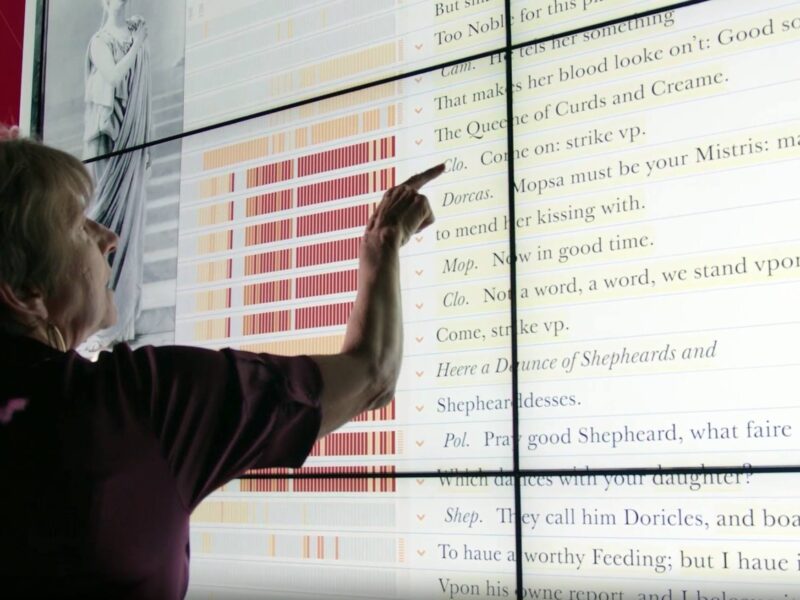Q&A: ESPN Host, Former Student Fernando Palomo
Fernando Palomo uses his vast soccer background to bring depth and insight to his work as the lead soccer play-by-play commentator covering European soccer in Spanish. He is the host of Fuera de Juego, ESPN Deportes and ESPN International’s highest-rated international soccer program since 2006.
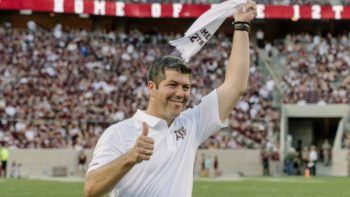
Palomo regularly contributes to ESPN’s soccer coverage in English as a studio commentator and play-by-play for select marches.
He joined ESPN in 2000 as a SportsCenter anchor for ESPN in Latin America and also served as an anchor for SportsCenter for ESPN Deportes from 2004 – 2006.
Palomo started his broadcasting career in 1999 with Channel 4 TV in San Salvador as a sports commentator covering a variety of events including the Olympics and the Pan American Games. In his native El Salvador, Palomo also showed his journalistic range as a correspondent for Radio Cadena YSU and as a columnist for El Diario De Hoy.
Throughout his career, Palomo has covered hundreds of matches including the UEFA Euro, FIFA friendlies, the Italian League, Spanish League, and the UEFA Champions League, among many others. He has called more than ten UEFA Champions League Finals, and in 2010 served as one of ESPN’s English-language play-by-play commentators during the FIFA World Cup.
Outside of his work as a sports broadcaster, Palomo was a member of the National Track and Field team of El Salvador and is the country’s record-holder in the javelin throw.
Fernando Palomo es una de las voces en español más reconocidas en el fútbol. Actualmente es la voz en español insignia del futbol europeo transmitido por ESPN Deportes y ESPN Internacional. Además se desempeña como conductor de Fuera de Juego, y es la voz en inglés de los partidos de la Selección Nacional de México transmitidos por ESPN.
Palomo llegó a ESPN en 2000 como presentador de SportsCenter para ESPN en América Latina. Además se desempeñó como presentador de SportsCenter para ESPN Deportes desde 2004 hasta 2006.
Palomo comenzó su carrera televisiva en 1999 en Canal 4 TV de San Salvador como comentarista deportivo, cubriendo una variedad de eventos, desde Juegos Olímpicos hasta Juegos Panamericanos. En su El Salvador natal, Palomo también demostró su destreza periodística como corresponsal de Radio Cadena YSU y como columnista de El Diario De Hoy.
Durante su carrera, Palomo ha cubierto centenares de partidos de la UEFA Euro, UEFA Champions League, UEFA Europa League, la liga italiana, la española, partidos amistosos de la FIFA, entre muchos otros. También ha relatado más de diez finales de la Champions y en 2010 se desempeñó como uno de los narradores en inglés para la cobertura de la Copa Mundial de la FIFA.
Más allá de su trabajo como periodista deportivo, Palomo fue miembro del seleccionado nacional de atletismo de El Salvador y tiene el récord nacional de lanzamiento de jabalina.
Why did you choose to go into broadcasting?
I didn’t choose to go into broadcasting, broadcasting came to me. When I was very little, I found television stations that just showed sports for 24 hours. I fell in love with that and I fell in love with the idea of talking about sports and showing sports 24 hours a day. I always wanted to do that.
I thought because of where I am from, El Salvador, the media was not developed enough to fulfill my expectations of professional careers. Therefore, I thought it was always going to be in the back of my mind to be involved in broadcasting. I thought I was going to the next available thing, or my passion, which was coffee. I come from a coffee growing family, and I love to drink it. While I didn’t know a lot about the production, I loved the marketing of it and that’s why I went into Agricultural Economics at Texas A&M.
I thought I’ll go back home and do that as my primary means of income and I’ll keep broadcasting on the side to express my passion. I started to work in broadcasting when I was in high school at a local television station in El Salvador. When I came back to El Salvador, I started my regular job in an advertising agency and tried to get to know that world a little bit. My brothers were looking over the coffee plantation or farm, and I kept my broadcasting as a hobby. Then one day I started to send out resumes to see who would be interested in looking at it, and ESPN was interested.
What led you to specialize in Javelin throwing at Texas A&M?
Well that is somewhat of a different story. Track didn’t come into me, I went into track. I was not the strongest, the fastest, or the one that could throw the furthest in any of the teams that I was a part of. I was the one that worked the hardest.
I had a dream of going to the Olympics. When I was little I started doing track and field because I watched the 1984 Olympics and thought it was cool event. I decided to compete in the decathlon, since it’s an event that allowed you to be inside the Olympic stadium for two days. I didn’t want to be a 100-meter sprinter if I am just there for 11 seconds. I wanted to be out there for two days.
As I started practicing in the decathlon, I realized fairly soon throwing was the thing I was the least worst at, so I decided to stick with the javelin. It wasn’t until I actually met with (coach) Juan De La Garza at A&M that I ended up with one of the best coaches and best mentors I’ve come across in my life.
What was your fondest memory at Texas A&M?
While my answer could last for hours, if I could narrow it down to one it would be the workout sessions we had in track and field. It allowed me to have the best times, since it was like being apart of a family. It was my time to meet with my buddies in the athletic society, and I cherish those memories like nothing else.
The smell of the track on any given day: cold day, hot day, rainy day, the smell of the track and laughter from our training group. We had assistant coach Juan De La Garza as our guiding light and it was just some of the best memories. If I could group them into one thing, it would be us all being out there on the track.
How often do you see A&M sporting events?
As often as I can, and I watch as much as I can. The range of sports includes track meets, football games, which are religiously a part of our lives, soccer, and basketball.
As far as going to Texas A&M to watch an event, I try to go a least once a year to watch a track and field event or football game. In past years, I’ve been able to watch both in the same year, a track meet in the spring and a football game in the fall.
What would you consider to be a great accomplishment in your life?
Raising a family. Trying to raise three kids and keeping a healthy household. And I guess meeting my wife (laughter). I’m not saying that because she’s probably going to read this, I’m saying it because she ended up filling in all the pieces that I was missing.
If you could broadcast one sport for the rest of your career, what would it be?
Oh wow! Golf, because I think those guys are able to keep their vocal cords sane and healthy. I’d loved to do track and field, to be honest. Maybe it’s because I haven’t had the chance to do as much during my years calling soccer matches. But if I could double up the time I’ve done soccer, and have that much time left in my career I’d like to do track.
There are a lot of great stories in there that I would love to tell and it seems like a lot of fun, but maybe that’s because I don’t do it as much. Soccer is a fun sport to call, and it’s exciting. It allows me insert stories during a match, which makes it fun to cover the way we call it. In our Latin American culture we’re used to calling the game in a way where it feels like a work out actually. You’re giddy all the time and it feels like your wired when you’re calling the game.
How did you become one of the voices for the FIFA video game series?
Back in December 2012, EA Sports people in Latin America called me with a question if I was willing to participate in a poll among the gaming community with the possibility of replacing the current voices of the game. I said yes, since I was honored to be considered. They told me they would call me with the poll results in a couple of weeks.
Time went by and when I was called they said I had been chosen to become the new voice of the FIFA game. I was extremely excited, because I played when I was younger. I was also excited about the fact that I could surprise my kids with being the voice of the game they played.
We recorded the game that whole spring. It was a novelty to me, recording a game that you’re not even watching. So they launched the game and presented us as the voices of the new game. When I asked about the results of the poll, to my surprise he told me ‘there was no poll since I was the only one who actually accepted to be a part of the poll.’ So, I guess there is value in saying yes without thinking about the consequences.
What was it like calling the World Cup?
That was a dream come true and I hope a dream that I can live again. Ever since I was little, my earliest memories of watching sports on TV centered on the World Cup. Just to be there in one of those booths and to know that the game I’m broadcasting is a game that a great majority of the world is watching. Not necessarily that they’re listing to me, but where I’m at is the center of attention of the sports world. It’s mind blowing and it’s a great responsibility as well.
It’s a fun and exciting time, but as well it’s one of the more tense professional moments I’ve been a part. You are scrutinized from the very minute the microphone is live and you hope to do a good job with each game. There were plenty games for me and my partner to call that year and it was definitely one of the greatest memories. Hopefully, I get another chance to be in the right place at the right time to be able to call one of those games again.
You have been in some famous stadiums that has passionate fan bases. How does Kyle Field, and the 12th Man, stack up compared to international soccer fans?
It’s right up there. Of course, I’m biased because when I go to Kyle Field I’m not there to work. That’s one of the places where I can be passionate. Texas A&M football is one thing I’m passionate for, so I’m one of the voices creating the noise.
Last year when I went to a game I tried to step back and just listen to the noise being generated. It’s right up there with any stadium I’ve been in. You can’t listen to the person next to you, because people are making so much noise. The passion and dedication each fan has when they go watch a Texas A&M football game is comparable to the passion and dedication the most avid European football, or soccer, fan would have.
The best description is to have no description at all. When you can’t find words to describe it, why go to the effort of trying to find words which wouldn’t be fair to the image you’re trying to describe.”
What lesson did you take away from A&M that had an impact on your career?
The value of respect for your peers. One of the biggest lessons I learned is that once you become part of a big community like Texas A&M, you are accountable for your actions. Taking care of the space you occupy at any particular point in that community.
Any actions have implications within the community, and you hope all actions are positive. You try to keep a majority of your actions as positive ones. But in moments where things don’t go your way, you know there is someone else who will lend a hand to help out. You try to become a person who others can reach out to in any need.
